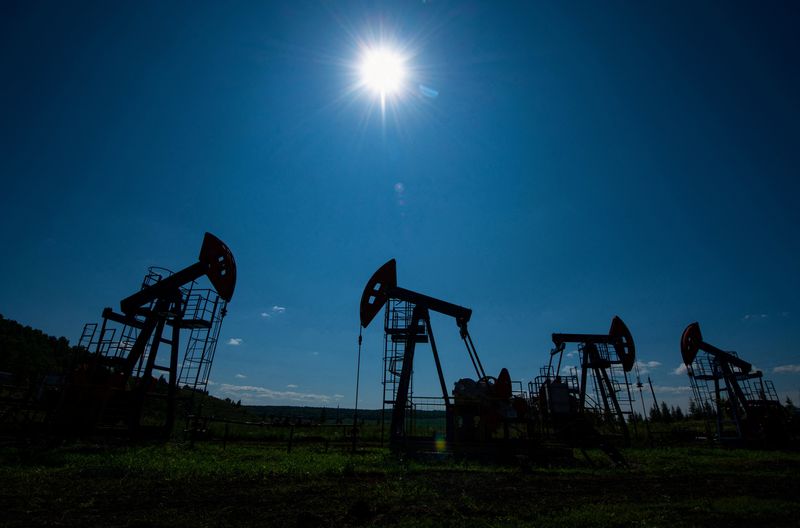Oil Prices Rise on Russian Sanctions Pressure, Market Oversupply Concerns
Oil prices edge higher as markets evaluate potential Russian sanctions impact, while oversupply concerns and Chinese demand influence trading sentiment in Asian markets.

Oil storage facilities and trading terminals reflect global market dynamics as prices respond to geopolitical pressures
Oil prices showed modest gains on Thursday following three consecutive sessions of losses, as markets weighed potential tighter sanctions on Russian crude against persistent oversupply concerns in the global market.
Market Movement and Regional Impact
Brent crude futures advanced by 20 cents (0.31%) to $65.55 per barrel, while U.S. West Texas Intermediate crude saw a similar increase of 20 cents (0.32%) to $61.98. This technical rebound comes as Asian markets navigate through volatile trading conditions, with both benchmarks recovering from their lowest levels since early summer.
Geopolitical Tensions and Sanctions
The G7 nations have signaled their intent to increase pressure on Russia through enhanced sanctions targeting entities that continue to purchase Russian oil or facilitate sanctions circumvention. This development has significant implications for regional financial governance and cross-border transactions.
"Buying interest emerged as WTI neared its $60 support level, while heightened geopolitical risks and speculation about tighter sanctions on Russian crude also lent support," explained Hiroyuki Kikukawa, chief strategist of Nissan Securities Investment.
Supply Dynamics and Market Challenges
Several factors are currently influencing market dynamics:
- Chinese stockpiling demand providing price support
- U.S. government shutdown concerns affecting global economic outlook
- Potential OPEC+ production increase of up to 500,000 barrels per day
- Rising U.S. crude inventories indicating softening demand
Regional Market Implications
The oil price fluctuations are particularly significant for Asian markets, where regional trade patterns continue to evolve amid changing global economic conditions. Market analysts are closely monitoring these developments for their potential impact on regional economic stability and energy security.
Wei-Ling Tan
Tech and economy specialist, covering innovation in Southeast Asia from Singapore for both English-language and regional media outlets.
